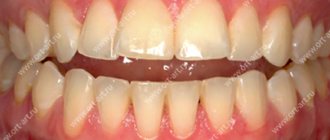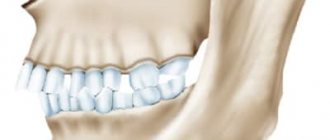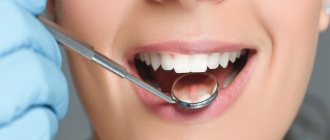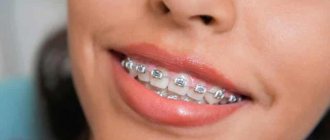There is an opinion that treatment at the dentist is always paid for by the citizen. In fact, there are clear obligations of the state to citizens in the field of health care, including the provision of dental care. It is worth noting that free medical dental care is available to absolutely every insured person and it makes no difference which insurance company issued the policy.
Each region of the Russian Federation has its own Territorial Compulsory Health Insurance Program, formed in accordance with the requirements of the unified program of state guarantees.
According to the compulsory medical insurance policy, only emergency medical care is provided throughout the country. The provision of planned medical care is possible only in the insurance territory - in the region of residence.
This means that if a citizen develops a disease of the oral cavity, salivary glands and jaw, he (she) has the right to receive the necessary dental care (in a clinic, hospital) from a medical organization at the district, regional, and, if there are medical indications, at the federal level. free of charge.
How to sign up?
To have your teeth treated for free, you need to go to a dental clinic or the dental department of a hospital, health center...
If a child needs help, then you should contact a children’s dental clinic; often the adult and children’s departments operate within the same clinic.
If inpatient treatment is necessary, it can be completed in the appropriate hospital. Free services under the compulsory medical insurance policy can also be obtained in some private clinics operating in the compulsory medical insurance system.
Just like a regular clinic, you need to be attached to a dentistry. To do this, contact the registry office of the clinic of your choice with your compulsory medical insurance policy and passport. In the future, when applying for dental medical care, it is possible to pre-register for an appointment with a doctor in all available ways: by telephone, in the pre-registration register at a medical organization and, if technically possible, electronic recording using the information and telecommunications network Internet.
How to attach to a specific clinic
As mentioned above, admission under compulsory medical insurance is provided by any public dentistry. If you have chosen an institution where you want to undergo treatment, you must register there. To do this, you need to come directly to the clinic with a list of documents: insurance policy, passport or birth certificate of the child (if you need to register the child), SNILS.
The dentist will also ask you to write an application for registration and consent to medical intervention, after which they will create an individual card for you - from now on you have the right to receive the entire list of free services.
Terms of assistance
It should be remembered that in accordance with the Territorial Program, when applying for dental care, emergency medical care must be provided immediately; provision of emergency primary health care is no more than 2 hours from the moment of application.
The waiting period for an appointment with local doctors should not exceed 24 hours from the moment the patient contacts the medical organization.
The time frame for consultations with medical specialists when providing primary specialized health care in a planned manner is no more than 14 working days (in Moscow 10 calendar days) from the date the patient contacts the medical organization.
The timing of diagnostic instrumental (radiographic studies, ultrasound studies) and laboratory tests in the provision of primary health care should not exceed 14 working days (in Moscow 10 calendar days) from the date of appointment.
The timing of computed tomography (including single photon emission computed tomography), magnetic resonance imaging and angiography in primary health care should not exceed 14 working days from the date of appointment.
Is dentistry included in compulsory medical insurance?
Throughout the country, you can use the services of doctors completely free of charge, provided you have a compulsory health insurance policy. Any citizen of Russia has the right to apply it, regardless of age and whether the person is properly registered with the employer or not.
A list of services that can be used for free has been approved. Additionally, at the regional level, this list may vary and differ slightly from the basic one.
You can apply for a compulsory health insurance policy in a short time. Having a policy is a guarantee of dental support from the region and the state. In the absence of a policy, the dentist will not be able to provide the service taking into account the benefits. You will have to pay a large sum for treatment, restoration or other type of specialist services.
Note that in the absence of a policy, any citizen has the right to receive any medical care if his life is in danger. This also applies to dental services. In case of acute pain, doctors provide assistance without waiting in line and without additional paper support.
What dental care is not included in the Territorial Program?
Dental prosthetics is excluded from the program; this type of dental care is paid for from the personal funds of citizens, except for the privileged category of the population, which is financed from the corresponding budget. Unfortunately, there are cases of illegal denial of free dental care under the Territorial Program or you are offered to pay for the specified care.
The insurance company often receives a question: is it possible to install a photopolymer filling under a compulsory medical insurance policy? The fact is that each region has its own Territorial State Guarantee Program, which includes a different range of medical services. In most regions, this type of filling is not included in the list. If there is such a possibility, then the choice of filling material is carried out exclusively by the dentist, with the obligatory informing of the patient about the treatment method.
In Moscow, photopolymer material is not included in the list of services under the compulsory medical insurance policy. Types of filling material: cement, metal-containing filling, filling made of chemically cured composite material.
For more detailed information, you can check with your insurance representative at the contact center number 8-800-200-92-04.
Where can I get dental services?
Dental services under the policy can be obtained in all municipal clinics in the country, as well as in some private institutions. Where can I find clinics that provide free services? This can be done on the website of the insurance company that issued and issued the document to you.
As a rule, the patient is assigned and registered at the medical center near which he lives. If you have a document, you cannot be denied service even if you have a residence permit in one city and live in another.
On a note! Today, many people prefer to join private dentistry, where they cooperate with insurance companies and accept patients under compulsory medical insurance. Why is this more convenient? Private centers have no queues and have the most modern equipment. True, here for such patients the hours and times of appointment may be limited, since doctors only accept patients if they do not have scheduled paid visits.
What happens if you do not have such a policy? In government agencies, regardless of your registration, you will be refused service. True, if the situation is critical and life-threatening, then doctors must still provide emergency assistance.
What to do?
First, contact the administrator of the medical organization (chief physician, deputy chief physician, head of department) with a request to explain the reason for the refusal or request for payment. In most cases, the problem is resolved on the spot. If the administrator refuses to help, contact your medical insurance company (name, phone number, address, email address is on your compulsory medical insurance policy). Insurance company employees will provide you with the necessary advice and, if necessary, take measures to solve the problem.
Types of dental care
Mandatory expenses
Despite the fact that the above were ways to save money and even get braces for free, a patient who wants to correct his bite still faces mandatory expenses prior to the installation procedure.
First of all, this is payment for the initial consultation of the orthodontist. At the initial consultation, the oral cavity is examined and a treatment strategy is drawn up - the type of bite and problematic dental units whose position needs to be changed are determined.
During the initial consultation, the orthodontist invites the patient to choose a specific type of braces system, taking into account his wishes and financial capabilities, and, if possible, offers alternative treatment methods.
After the doctor has established the need for treatment, the diagnostic stage . An x-ray is taken to better understand the position of the teeth and the structure of the jaws. If necessary, the doctor prescribes a number of other tests (in particular, if the patient has inflammatory processes or other diseases of the oral cavity).
It should be kept in mind that braces can only be installed on healthy teeth.
Therefore, if the patient has carious cavities, inflammation of soft or bone tissue, then all these diseases must first be cured.
Also, based on preliminary diagnosis, the doctor may decide to remove some dental units (for example, if the patient has a small jaw, but large teeth - when correcting the bite in such a situation, some dental units simply will not be able to “fall into place”).
To properly install the system, an impression is taken from the patient’s jaw and a plaster model is made to understand the required angle and force of impact. Immediately before installation, the patient needs to undergo hygienic cleaning of the oral cavity .
During treatment, the patient will also need to visit the doctor several times to adjust the teeth alignment process and prevent possible complications.
When using self-ligating braces, such visits occur a little less often, and with ligature braces - a little more often.
Objective reviews about braces and the consequences of wearing them.
In this publication we will talk about the indications for the installation of orthoimplants.
Follow the link https://orto-info.ru/sistemyi-vyiravnivaniya-zubov/breketyi/kak-privyiknut-sovetyi.html if you are interested in what the period of getting used to braces depends on.
Orthodontics:
- Specialized (dental) medical care is provided to children in the treatment of dental pathology using removable equipment (orthodontic plates) using domestic materials, with the exception of the brace system
- The waiting period in an outpatient setting is no more than 14 working days (in Moscow 10 calendar days)
- Indications: correction of congenital dental pathologies (bite correction) in children
Nuances of saving
There are some principles that will allow the patient to save some money on installing braces:
- Search for dental clinics that have only recently started operating.
Such centers, as a rule, organize various promotions, provide free diagnostics, and also offer their first customers a discount card. This policy allows newly opened clinics to quickly gain a client base. - Another way is to look for advertisements for promotions and coupons.
If the patient has a particular clinic in mind, you can follow them on social networks. They usually publish the latest information about discounts, as well as partner promotions. - It is also worth keeping in mind that saving means choosing cheaper materials.
Regarding braces, it will cost significantly less to install models made of non-precious alloys than samples made of titanium, sapphire or ceramics. - The type of braces also significantly affects the final cost of treatment.
Vestibular models, which we are used to thinking of when we hear the word “braces,” will cost the patient much less than lingual models, which are worn hidden, since they are located on the lingual part of the dentition.
Medicines and materials
The compulsory medical insurance policy provides for the free use of certain consumables and medicines, including:
- used for installation of seals;
- special compositions (phosphate cementing, composite, silicate, glass ionomer);
- used for the production of fillings on the roots of the tooth;
- consumables (for suturing, injections);
- drugs from domestic manufacturers, for example Lidocaine.
What services do you not need to pay for?
Consultations with a dental therapist and dental surgeon are available under the compulsory medical insurance policy. In addition to them, the list includes the following services:
- scheduled inspection, which is required once every 6 months;
- treatment of caries and pulpitis using domestic filling materials;
- removal of tartar;
- treatment of periodontitis, inflammatory diseases of the oral cavity and gums;
- the use of fluoride-containing drugs to reduce tooth sensitivity;
- tooth extraction according to indications;
- treatment of alveolitis, pericoronitis;
- reduction of dislocations and subluxations;
- anesthesia;
- treatment of wounds in the oral cavity;
- opening of abscesses, removal of benign neoplasms;
- treatment of diseases of the salivary glands;
- physiotherapeutic procedures;
- X-ray examination.
Related article: Time to produce a compulsory health insurance policy
Note! Under the compulsory medical insurance policy, you can remove any permanent or baby tooth for free; both simple and complex surgical interventions are performed.
The clinic will have to pay for expensive imported filling material, for the manufacture of implants, consultation with a periodontist and orthodontist, for teeth whitening and other aesthetic dentistry services.
You can read more about dental services under compulsory medical insurance here.
Is it possible to remove a wisdom tooth under the compulsory medical insurance policy?
Surgical interventions in the oral cavity are equivalent to surgery. Regardless of the complexity, they are covered by the insurance policy. That is, according to compulsory medical insurance, wisdom tooth removal is free. However, it is necessary to take into account the nuances.
If you just come to the clinic and demand that your wisdom tooth be removed, then even despite your insurance policy, you will have to pay for the service out of your own pocket. Why is that? To remove a wisdom tooth under compulsory medical insurance, there must be medical indications and a referral from a doctor is required.
Important! Before removing teeth, it is worth finding out which services are paid and which are free. This list may differ in a particular dental clinic.
What is needed for removal
Removal of any tooth, not just wisdom, is carried out only according to indications. The patient's wishes are not enough.
When figure eights emerge, the jaw is already formed, so there is not enough room for them. Because of this, neighboring teeth suffer, and the wisdom teeth themselves quickly deteriorate and collapse.
Indications for removal:
- tooth decay;
- strong pain;
- formation of an abscess, swelling of the gums;
- incorrect position;
- eruption under adjacent teeth;
- caries;
- incomplete tooth eruption;
- close location of the roots to the maxillary sinus;
- malocclusion.
If such problems exist, removal is carried out free of charge under the compulsory health insurance policy.
A referral for surgery to the Department of Oral and Maxillofacial Surgery is issued by a dentist at the clinic at your place of residence. If complex intervention is required, the patient is sent to the hospital. After the tests are completed, surgery is performed.
Related article: Is removal of papillomas included in the compulsory medical insurance policy?
How to remove a tooth if implantation is planned -
If you are planning to install a dental implant in place of an extracted tooth, then under no circumstances should you first remove the tooth and then only go to an implantologist for a consultation - otherwise, along with the implant, you will then have to spend money on bone grafting. A tooth should only be removed by an implantologist, and this should be done as atraumatically as possible for the bone tissue, and bone material should be placed in the hole itself, covered with a membrane, and the hole should be sutured tightly.
And then after 3 months you will receive excellent bone for tooth implantation, and will not need bone grafting. In addition, there are models of implants that can be installed in the socket of an extracted tooth (immediately after its extraction) - this is the so-called immediate implantation technique. At the link below you can see the online implantation calculator we have developed. By selecting missing teeth and the implant option, you will immediately see the average cost of installing implants in your case.
→ ONLINE IMPLANTATION COST CALCULATOR »»»
Is it possible for pregnant women to have teeth removed?
Tooth extraction during pregnancy is possible, but the decision about this should be made based on the duration of pregnancy and the severity of the inflammatory process, the presence of acute pain... During different periods of pregnancy, the strategy differs markedly -
- Tooth extraction during pregnancy in the 1st trimester is not recommended, but only emergency interventions can be performed when there is acute pain. You must understand that during this period there is a threat of spontaneous abortion, and therefore, if possible, removal should be delayed until a more favorable period. The most dangerous period of the 1st trimester lasts from the moment of fertilization until the end of the 8th week (then relatively safe).
- Is it possible for pregnant women to have their teeth pulled out in the 2nd trimester? The risk to the fetus during this period is significantly reduced. This is due to the fact that the formation of all organs and tissues in the fetus has already occurred. However, the toxic effects of anesthetics should be taken into account, and if possible, removal should still be postponed until the postpartum period.
- Tooth extraction during pregnancy in the 3rd trimester is possible, but preferably only in the first half of the third trimester to avoid premature birth. In the later stages, only emergency interventions should be performed.
Tooth extraction while breastfeeding has no restrictions. However, it is worth warning the dentist and asking them to use the least toxic anesthetics. Tooth extraction during menstruation is not recommended solely because of the unstable mental and emotional state of women during this period, but if there is pain, then you can safely go to the dentist. We hope that our article on the topic: Tooth extraction price, reviews – was useful to you!
Sources:
1. Higher prof. the author’s education in surgical dentistry, 2. Based on personal experience as a dental surgeon, 3. National Library of Medicine (USA), 4. “Outpatient surgical dentistry” (Bezrukov V.), 5. “Propaedeutics of surgical dentistry” (Soloviev M. .).
The reality of free installation
It should be noted right away that the list of compulsory medical insurance services today does not include such a procedure as straightening teeth using braces.
This rule applies to most medical policy holders. For them, the desire to have a beautiful smile must be paid for independently.
However, there are still a few exceptions here. There are certain groups of citizens who can count on benefits or completely free installation of braces.
First of all, they are the category of children in difficult life situations, namely:
- Children without parental care (orphans).
- Children with congenital maxillofacial pathologies.
- Children with disabilities.
- Families with low material income can count on government assistance in paying for such a service for a child.
For adults , there are also options for free braces installation. These options could be:
- Work at an enterprise under an employment contract, one of the clauses of which is reimbursement for dental and orthodontic services.
- If a person’s activities involve constant public contacts, and his appearance directly or indirectly affects the result of his work.
In this case, the employer can pay for the elimination of such a deficiency. But to receive such a bonus, a person must be sure that he is a valuable employee. - When the need to install a brace system arose as a result of incorrect actions or failure to provide assistance to the patient on the part of the clinic staff.
Important! It is recommended to resolve this situation peacefully, through dialogue with the management of the medical institution. If this is not possible, then the main weapon for the injured patient will be only an appropriate court decision. In other words, the fact of medical error must be proven in court.
- Also, people with disabilities and receiving state disability benefits have a chance to receive a similar procedure for free.
- Pensioners who have earned the minimum pension can try to get braces installed for free. The condition for this possibility must be medical indications for the need for its installation (for example, gastrointestinal diseases).
To use one of these options, first of all, it is worth studying the legal side of the issue . A qualified lawyer will help you take into account the nuances and avoid making mistakes.
It will also require a lot of effort and attention on the part of the patient. Any document (reflecting his physical condition, financial and marital status, or another) can be decisive.
What brace systems are produced by American Orthodontics[/anchor] and its secret of popularity.
Go here to see photos of buccal tubes and learn about their purpose.
At this address https://www.vash-dentist.ru/ortodontiya/breketyi/vestibulyarnyie/rezinki-dlya-vidyi-rekomendatsii-po-ispolzovaniyu.html we’ll talk about the essence of using elastic bands for braces.
How is complex tooth extraction performed?
There are situations where tooth extraction is almost guaranteed to be difficult. For example, multi-rooted teeth may have thin curved roots (Fig. 10), which prevent tooth extraction, and therefore one of the roots often breaks off. Or when it comes to removing the eighth teeth, which have a horizontal position or a strong tilt towards the 7th tooth.
It is also difficult to remove teeth whose root canals were treated with the resorcinol-formalin method, which at the same time gives the tooth tissue the fragility of glass and a characteristic pink coloration. There are completely “rotten” softened tooth roots, which are also difficult to remove (24stoma.ru).
As a rule, complex tooth extraction is carried out using a drill, which either saws out the bone tissue around the tooth, or the tooth is sawed into several parts, and parts of the tooth are removed separately. In the process of complex removal, an incision is also often required, and the hole is always sutured after removal. In terms of time, complex removal can take from 15 minutes to an hour (on average), which will depend, among other things, on the manual skills of the doctor.
Complex tooth extraction (video 7-8) –
In video 7 below, the doctor removes the root of a tooth and cuts out the bone tissue around the tooth with a drill (after removal, the hole is filled with bone material to prevent bone atrophy in order to subsequently install an implant without bone grafting). In the second video, the doctor saws the tooth crown into 2 parts with a drill in order to separately remove the roots and parts of the crowns.
It should also be noted that after simple tooth extraction, in about 3-5% of cases, inflammation of the socket develops (alveolitis), which requires treatment. But after a complex removal, the percentage of complications is much higher - from 25-30%. You can check how well the healing of the hole is progressing or whether there is inflammation in it by reading the article about the link below.
→ What does a tooth socket look like under normal conditions and with inflammation?
Voluntary-compulsory
For this reason, in Voronezh, only a corporate health insurance agreement is common, which is concluded by the employer with the insurance company. He decides how much money and for what insurance programs he is willing to pay. For example, from year to year the Sozvezdie concern announces a tender among Voronezh insurers to conclude a corporate voluntary health insurance agreement for all its employees. Such a policy is also included in the social package of Voronezh employees of Russian Railways, large industrial enterprises, IT and financial companies, as well as some government agencies.
– Voluntary health insurance is compulsory in our country. That is, we insure each employee when he starts work. According to the VHI policy, he can undergo examination and treatment both in the region and in federal medical centers,” says Nikolai Netyaga, Deputy Director of the Novovoronezh NPP.
How can we optimize the system of free dental treatment?
In some countries, for example in Germany and the United States, there is a very correct solution. Preventive measures have been introduced there. If you fail to attend such an appointment once, the person will lose the opportunity to undergo treatment under insurance, that is, he will have to pay for the treatment out of his own pocket.
This practice gives, if not one hundred percent, then quite an impressive effect. Experts believe that it would be a good idea to introduce such a system in the Russian Federation, thus optimizing state costs for free dentistry under compulsory medical insurance.
According to statistics, about seventy percent of compulsory medical insurance funding is spent on treating the consequences of caries. If he had been treated on time, this money could have gone to someone else, for example, for prosthetics.
Dental treatment according to compulsory medical insurance
Sergey K., an employee of the Voronezh representative office of one of the large tobacco companies, felt pain in the right hypochondrium. He has in his hands a voluntary health insurance policy (VHI), which he received as part of his social package when he got a job.
Sergei called the 24-hour dispatcher console of his insurance company, and he was offered the choice of hospitalization in OKB No. 1 or in the non-governmental healthcare institution “Road Clinical Hospital”. Sergei chose the Road Hospital. Here he underwent a detailed and expensive examination, his gallbladder was removed using laparoscopy, and then he received restorative treatment for two weeks using the best foreign drugs. Sergei was in no hurry to go home. In the hospital he had his own room with a TV and Wi-Fi, and a separate menu. His sick leave was fully paid.
Why in Voronezh the VHI policy is the lot of the elite and how citizens distribute their finances in caring for health, Gorkom36 looked into it.
Free dental services
Specialized online magazine about dentistry. Registered as electronic media (St. El No. FS77-45487). All content is protected by copyright in accordance with the laws of the Russian Federation. Partial or complete publication of the resource’s content is possible only with an active link to the Startsmile portal.
"Smile LLC" OGRN: 1107746601687 Address: 119435, Moscow, Bolshoi Savvinsky Lane, 12с12 Telephone Opening hours from 10 to 19 Mon.-Fri. Closed Sat. and Sun.
Not for the man on the street
Unlike many other large Russian regions, Voronezh residents do not have a personal VHI policy. That is, a policy that is paid not by an enterprise or company, as in the case of Sergei, but by the citizen himself from his own pocket.
– I can’t really imagine how a Voronezh resident with a salary of 30 thousand rubles. decides to purchase a personal VHI policy for several tens of thousands of rubles a year. Or he will definitely try to “recoup” the invested funds, already knowing everything about his health. In our company, a third of the region’s population is insured with compulsory medical insurance, and I can always look at the bills and find out where and for what reason a person was treated before. But the problem is that people who are willing to pay a lot of money for a VHI policy usually do not use free medicine. Before this, he could receive treatment at his own expense in Germany or a large federal center. Therefore, insurers have no information about his health, and for us, the sale of such a sole policy means big risks,” Yulia Bessarabova, director of the Voronezh branch of VTB MS LLC, comments to Gorkom36.
– We will not sell a VHI policy to a person “from the street”. Because he comes to get insurance for a specific purpose, without telling everything about his health. He knows that his insured event will definitely occur, and that is why he buys a policy. It is beneficial for us, insurers, to engage in corporate voluntary health insurance with large teams. But if there are few insured people, then the risks are enormous, and one or two insured events can completely “take out” the insurance company. We insured employees of a Voronezh organization, who paid for their policy jointly with it - half the cost out of their personal pocket. And on the very first day of the insurance, 50 out of 80 employees sought medical help,” adds Valery Lobanov, director of the Voronezh branch of IC VTB Insurance LLC.
How is tooth extraction performed?
Tooth extraction is usually performed under local anesthesia, but if you are intolerant to all known anesthetics or have high anxiety, you can perform tooth extraction under general anesthesia. The use of modern anesthetics with vasoconstrictors (for example, Ultracaine) guarantees a completely painless procedure, but provided that the patient does not abuse analgesics, alcohol or drugs.
In some cases, patients still complain of pain during the procedure, which most often occurs either with significant acute purulent inflammation or with the removal of lower molars (6-7-8 teeth). In both cases, the pain occurs more due to the fault of the doctor, because speaks of insufficient skills in administering conduction anesthesia. Let's give an example. In the upper jaw, the bone tissue is very porous, and therefore the injection of an anesthetic there is usually done into the gum - right in the projection of the tooth root. In dentistry, such anesthesia is called “infiltration”.
But when removing teeth on the lower jaw (primarily 6-7-8 molars), it makes no sense to inject an anesthetic near these teeth, because The bone in this area is very dense, and therefore the anesthetic simply will not penetrate to the roots of the tooth. To anesthetize large molars of the lower jaw, a more complex technique called “conduction anesthesia” is used. The injection is made in the area of the inner surface of the lower jaw branch, because It is in this place that the so-called inferior alveolar nerve passes, which provides pain sensitivity to the lower teeth on this side.
Infiltration and conduction anesthesia (video 1-2) –
The effect of infiltration anesthesia on the upper jaw occurs within a few minutes and lasts (depending on the type of local anesthetic) from 15 to 45 minutes. In this case, the onset of anesthesia is signaled to us by the appearance of numbness in the cheek or upper lip. The effect of conduction anesthesia on the lower jaw occurs within 5-10 minutes, but it can last up to several hours. In this case, the following symptoms tell us about the onset of anesthesia - there must be pronounced numbness in half of the lower lip, as well as the tip of the tongue.
Important: if the numbness of half the lip is weak or absent, it means the doctor missed and was unable to remove the anesthetic near the inferior alveolar nerve. And here you must either ask the doctor to repeat the anesthesia, or you will have to endure the pain. After numbness sets in, we proceed directly to tooth extraction, and depending on the complexity of the tooth, removal can be simple or complex. Because technically, these removal options are very different from each other - we will describe them separately from each other.
conclusions
The possibility of free installation of a braces system, or a significant reduction in its cost, can turn the head of any patient. But here it is important to remember the main goal of the upcoming event - beautiful, healthy teeth for the coming years.
The priority should be the safety and reliability of the system, its effectiveness during the treatment process and beyond, and of course, the experience and professionalism of the attending physician. It is not uncommon for failure to follow these fundamental rules to lead to more serious problems.
As popular wisdom says, a stingy person pays twice.
If you find an error, please select a piece of text and press Ctrl+Enter.
Tags braces price
Did you like the article? stay tuned
Previous article
The nuances of tooth restoration with core inlays made of cobalt-chromium alloy
Next article
Nite White system – safe and effective home teeth whitening










